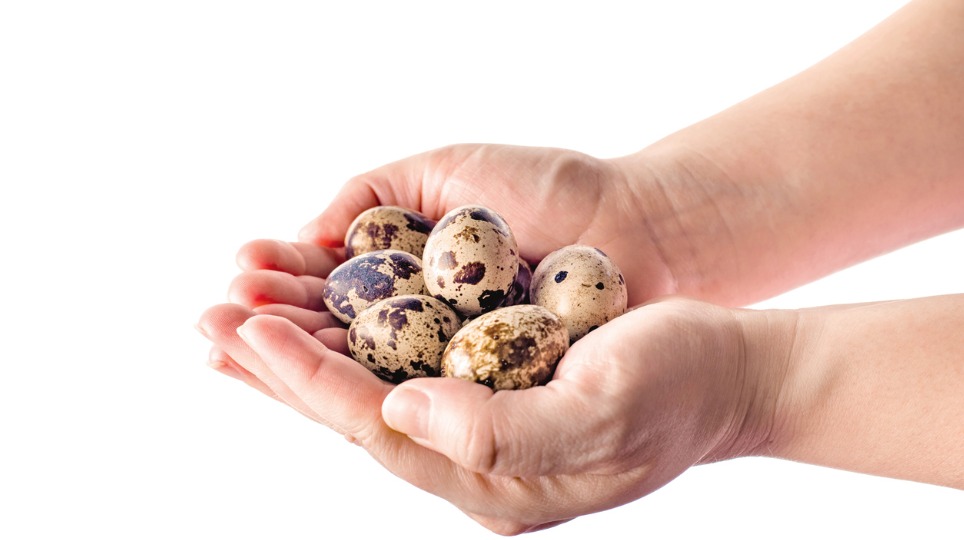9 Facts Every Woman Should Know About Her Fertility

Women don’t usually give much thought to their fertility, unless they are dealing with a health condition linked to their menstrual cycle.
Yet, when she is trying to conceive, she might suddenly realise that falling pregnant isn’t as straightforward as it seems. Indeed, many woman have preconceived notions regarding their fertility, even though numerous factors affect a person’s ability to conceive. After all, it’s tough to separate fact from fiction when tons of old wives’ tales and superstitions exist.
Dr Liana Koe, an obstetrician and gynaecologist at Thomson Medical Centre’s STO+G Practice, addresses commonly-asked fertility questions.
1. You can’t do anything to have more eggs
“Unfortunately, our bodies are unable to produce more eggs,” Dr Koe says. “Women are born with all the potential eggs they will have, and this slowly declines throughout life.”
In terms of numbers, she explains that a newborn has about 1 to 2 million eggs. The number gradually declines to about a few hundred thousand at puberty. The egg number decreases gradually every year, with a more dramatic decrease after age 37.
“Unfortunately, our bodies are unable to produce more eggs. Women are born with all the potential eggs they will have, and this slowly declines throughout life.”
2. Your period is a sign of your fertility
The regularity (or irregularity) of your menstrual cycle does affect your chances of conceiving.
“Women should ovulate (the releasing of an egg from the ovary) every month, and if no pregnancy occurs, the lining of the womb will shed and flow out as menses,” explains Dr Koe. “A regular monthly period usually indicates regular ovulation. An irregular period is often a sign that ovulation is not happening.”
As ovulation is necessary for pregnancy to occur, irregular periods may therefore reduce your chances of conceiving. “It can also be a sign of underlying medical conditions that prevent the egg from being released, such as thyroid and prolactin abnormalities,” Dr Koe explains.
3. You can get pregnant without having an orgasm
“There are some theories that female orgasms result in womb spasms that can propel the sperm towards the egg,” Dr Koe notes. “No conclusive studies have surfaced thus far, but there is no harm in making sex enjoyable to remove the stresses of conception!”
Although having an orgasm during sex is desirable, not having one does not in any way lower your ability to conceive.
“Of course, men will need to ejaculate successfully in order to release sperm for conception,” Dr Koe notes.
4. Conceiving later in life will be more challenging
“As previously mentioned, there is a gradual steady decrease every year in the number of eggs a woman has,” says Dr Koe.” At age 37, the decrease becomes more dramatic and this results in a lower chance of conceiving.”
In addition, conceiving after 35 increases the risk of chromosomal issues with eggs, as well as a higher chance of miscarriage.
Still, most women at age 35 have a 15 to 20 per cent chance of getting pregnant in a given month ― or an almost 80 per cent chance of conceiving within a year.
As being an older mum offers numerous benefits, take heart if you’re trying for a baby at a later age!

5. Your weight does play a role in your ability to conceive
Maintaining a healthy lifestyle and weight is optimal for conception, as a high body mass index (BMI) of >30kg/m2 can prevent ovulation and reduce fertility, Dr Koe notes.
On the other hand, an excessively low BMI (<19kg /m2) also prevents one from ovulating, which in turn reduces fertility. As such, focus on achieving a healthy weight through a balanced diet and regular exercise.
Some may also question if one may be “too fit” to get pregnant. However, Dr Koe assures that as long as periods are regular, it is unlikely that one is “too fit” to conceive. “Of course, anything in excess is not good ― even exercise,” she says.
6. Being on birth control pills does not affect your future fertility
Being on the pill will prevent pregnancy, since is a contraceptive.
“However, upon stopping the pill, there should be no impact on future fertility,” Dr Koe assures. “Studies have shown that upon stopping birth control, pregnancy rates in the next year are the same as women who were never on the pill, regardless of the duration of use.”
This means that the moment you stop taking the pill, its contraceptive effects will disappear and your ability to conceive returns to normal.
“Studies have shown that upon stopping birth control, pregnancy rates in the next year are the same as women who were never on the pill, regardless of the duration of use.”
7. Certain sexual positions do boost your chances of conceiving
“Positions that result in the sperm being deposited closer to the cervix ― such as ‘missionary’ or ‘doggy-style’ ― theoretically will increase the chances of pregnancy,” says Dr Koe. “After intercourse, lying down on your back also increases sperm retention.”
However, whatever position you choose, do make sure it that it’s enjoyable, she adds. Your aim when you have intercourse is to experience pleasure, not feel the pressure of conceiving, which can result in added stress and anxiety, and will adversely affect your baby-making efforts.
8. You are only fertile a few days per month
Ovulation tends to occur about two weeks before the next period begins. A woman’s fertile window, which begins one to two days before ovulation, ends a day after ovulation (a total of about four days). “However, sperm can survive in the body for around three to five days,” Dr Koe explains.
To boost your pregnancy chances, she recommends having sex several days prior to ovulation (including the day you ovulate) to ensure the presence of sperm. This is because it can be difficult to predict or figure out the exact day of ovulation.
If working out your fertile window proves too stressful, focus on having regular intercourse about two to three times a week. “This, in fact, gives you the best chance of conceiving,” Dr Koe notes.
9. Consider screening tests to find out how fertile you are
“A few things are required for a successful pregnancy: Healthy sperm, ovulation, unblocked tubes (to allow the sperm and egg to meet and fertilise) and a normal womb cavity (where the baby is to implant and grow),” Dr Koe notes.
As such, screening tests you take should include:
- Blood tests to check your egg reserve (known as anti-mullerian hormone (AMH) and ovulation status).
- An ultrasound scan of the pelvis to check the womb and ovaries.
- A hysterosalpingogram (HSG) test to check the shape of the uterus and whether the fallopian tubes are blocked.
- A sperm count for the husband.
